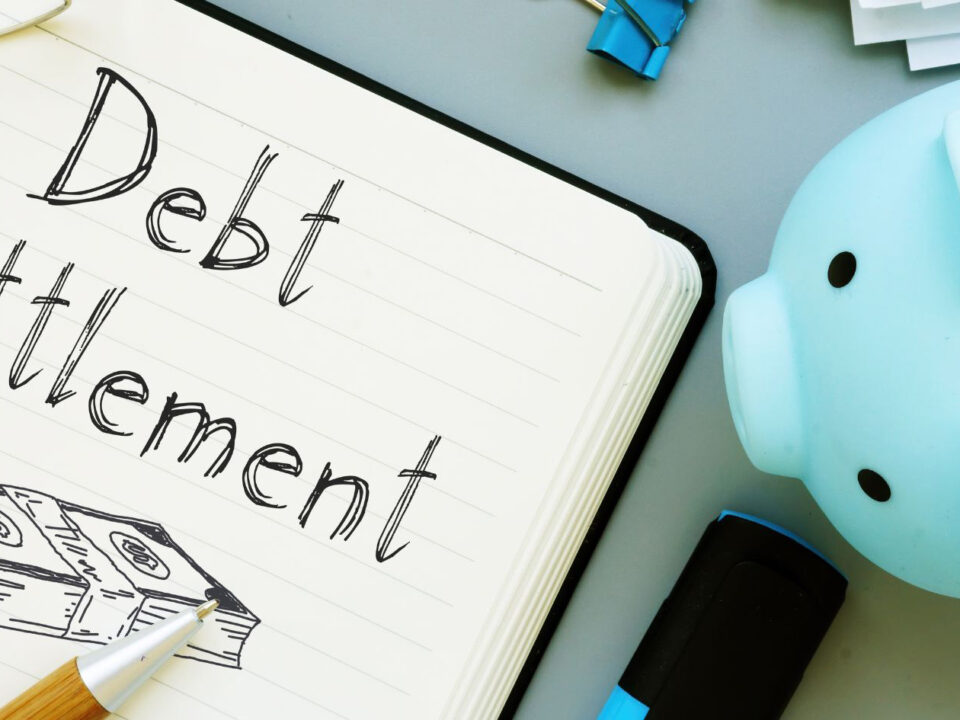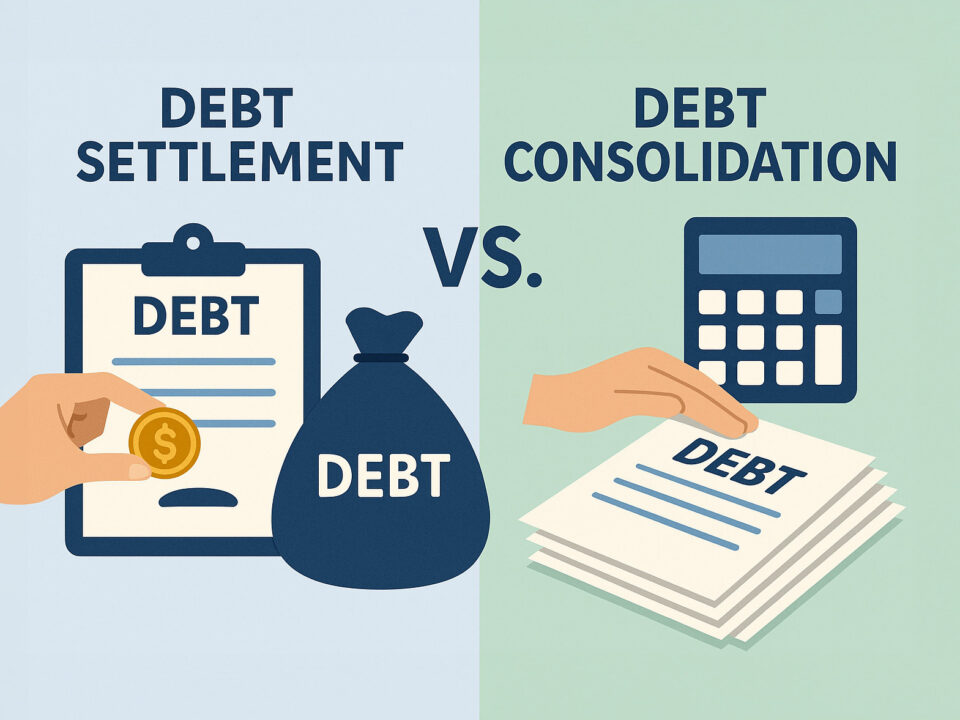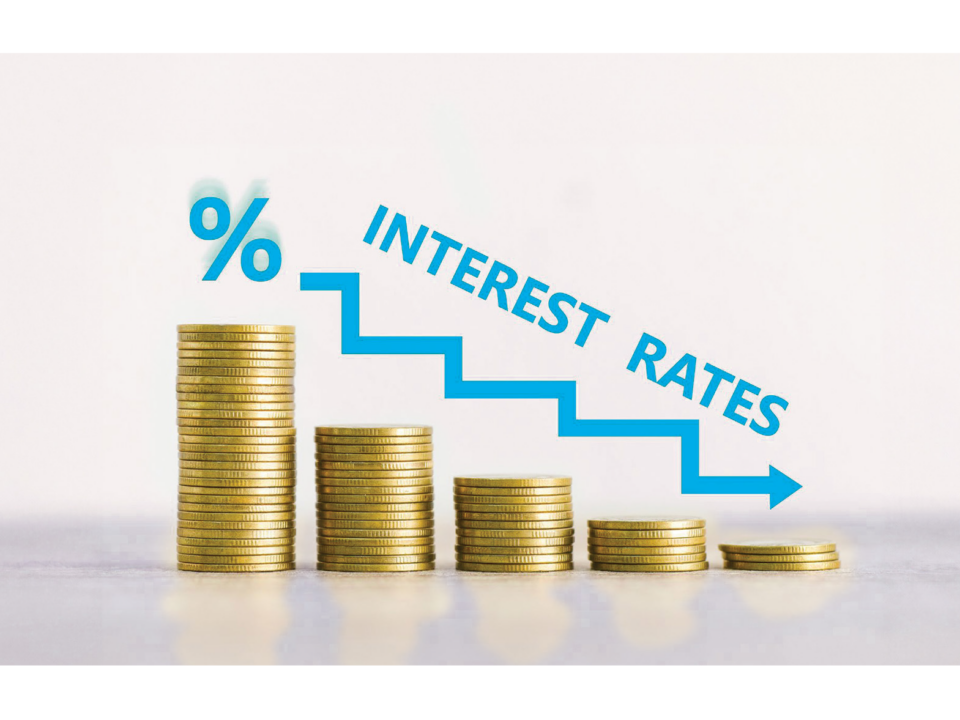
When you’re in debt, it can be hard to figure out the best way to pay it off. There could be multiple loans and credit cards to deal with, each with its own interest rate and fees. It can be difficult to pay them all off, so it’s comforting to know there are debt consolidation loans for people with bad credit in California. These loans allow you to consolidate all of your debts into one monthly payment at a lower interest rate. If you’re in financial trouble and think one of these loans might be a good fit for you, you’re likely wondering, “How do I get started? This blog post will outline the steps for finding and taking out a debt consolidation loan in California, regardless of your credit score. Let’s dive in!
What is a Debt Consolidation Loan?
Debt consolidation loans provide an opportunity to merge multiple debts into one loan with a lower interest rate. This can help individuals reduce their overall debt burden, allowing them to make one manageable monthly payment. It’s important to note that when taking out a debt consolidation loan, you’re simply swapping out one form of credit for another rather than reducing the amount of money you owe. While debt consolidation loans can be beneficial in some cases, they do carry risks, and consumers should do their research before signing up.

Proponents of taking out a debt consolidation loan argue that it can help simplify borrowers’ finances by providing them with a single payment and interest rate. Additionally, it may have the potential to lower monthly payments by getting rid of high-interest payments and spreading costs over a longer period of time. Supporters also note that consolidating debt may improve credit scores by reducing the amount of credit used relative to total available credit.
Opponents of debt consolidation stress that combining all outstanding balances into one lump sum could make it more difficult to keep track of spending and other financial obligations. Furthermore, extending the repayment period could lead to higher overall interest payments if the loan isn’t paid off quickly enough. Lastly, if borrowers struggle with impulse buying or find themselves facing an emergency expense, they might use their loan funds for other purposes or rack up additional, expensive debt in the long run.
When considering whether to take out a debt consolidation loan, it’s crucial for borrowers to weigh both sides of the argument carefully and carefully review their current finances before making any decisions. By understanding how these types of loans work and looking at individual needs and goals, individuals can strategically plan their financial future and decide if this type of product is right for them. With proper research and planning, taking out a debt consolidation loan could potentially be a smart move—but only after carefully weighing the pros and cons to ensure it fits into long-term financial plans.
Navigating through the various options when dealing with bad credit can be daunting, but understanding the basics and benefits of debt consolidation loans is an important first step. Knowing that there are solutions available can help Californians suffering from bad credit confidently move forward in managing their finances responsibly, from developing a budgeting strategy all the way to finding appropriate financing solutions designed to fit their unique needs.
Top Points to Remember
Debt consolidation loans can potentially be beneficial by providing a single payment with a lower interest rate and could improve a credit score if managed properly. However, they are not without risk, and it’s important to thoroughly research and weigh all pros and cons before taking out such a loan to ensure it fits into your long-term financial plans. Having knowledge of potential debt consolidation solutions is essential in managing finances responsibly for those dealing with bad credit.
Benefits of Debt Consolidation
When considering a debt consolidation loan, the potential benefits of such a decision should not be overlooked. Debt consolidation can give borrowers an opportunity to simplify their repayment plan and potentially lower interest payments by consolidating multiple debts into one loan. Furthermore, it can help create clarity and order in the chaos of multiple payables, as these loans allow borrowers to combine numerous bills into a single payment with one fixed interest rate. Many debt consolidation providers will also work with credit card companies to reduce fees and adjust rates, leading to substantial savings for loan owners.
On the other side of the argument, some experts caution that debt consolidation comes with its own risks, including the possibility of extending loan terms or increasing debt balances over time as practitioners attempt to lower rates. While this may be true in certain cases, there are several products available that offer flexible repayment options with competitive interest rates, eliminating the risk associated with taking out a longer-term loan. Additionally, opting for a loan secured by assets like a house or car can also further reduce costs for qualified individuals.
It is important to remember that there can be both advantages and potential drawbacks when making decisions about debt consolidation. For those who take the time to carefully review their options and understand the repercussions of their choices, consolidating their debts can be an effective tool for minimizing long-term financial strain and hardship. With this knowledge, borrowers should be better prepared to assess their eligibility for these types of loans and decide whether they could benefit from a debt consolidation loan in California.
Eligibility for Consolidation Loans in California
Eligibility for consolidation loans in California is mainly based on having good credit or a steady income. Although it is more difficult to qualify for these loans if you’re dealing with bad credit, there are lenders who will consider it as long as the other factors line up.
Debate: It’s important to consider both sides of the argument when it comes to eligibility for consolidation loans. On the one hand, lenders that accept people with bad credit often require high minimum incomes and larger down payments. On the other hand, those with great credit might benefit from low-interest rates and better qualification terms.
Evidence/Examples: Although applicants with bad credit may find higher interest rates and stricter qualification terms, they still have many options for consolidating their debts. Having good credit increases your chances of approval, but there are lenders who work with those who don’t have excellent credit scores. Furthermore, some lenders might even offer terms that can help improve your credit score in the long run if you make all your payments on time and keep track of your finances responsibly.
In conclusion, eligibility for consolidation loans in California depends on a variety of factors, including income level, current financial situation, and credit score. By understanding what these requirements are and being able to meet them, applicants can get started on the path toward loan approval and debt relief. Now that we’ve discussed the benefits of debt consolidation and the eligibility requirements for a loan, understanding the specifics of how to qualify is our next step in this journey.
Requirements to Qualify for a Loan
Requirements for debt consolidation loans are generally the same across California, although there can be notable differences for bad-credit borrowers. In general, however, lenders will require evidence of income and employment, proof of residence, and a near-perfect credit score in order to qualify. Other eligibility requirements may include a minimum loan amount and demonstrating an ability to repay the new loan.
The requirements for someone with bad credit are generally stricter than those for those with good credit, as these individuals pose a greater risk. People with bad credit may still be eligible for loan consolidation if they have proof of 12 months’ worth of stable income coupled with a reliable job or business that shows no sign of financial hardship. Additionally, applicants must demonstrate that their monthly debt payments do not exceed a certain percentage of their total income.
Of course, the best way to ensure eligibility is to work on improving one’s credit score over time; this action alone will make it easier to secure loan approval. Those serious about obtaining a debt consolidation loan may benefit from consulting with a non-profit advisor or attending free seminars focused on consumer education. Through research and preparation ahead of time, individuals can be sure that their application meets the necessary legal requirements for approval.
By taking the proper steps and understanding the qualifications needed for a debt consolidation loan in California, borrowers can find peace of mind knowing they’re submitting applications with greater chances of approval. With this insight in hand, buyers are now ready to begin searching for reputable lenders offering these types of services in California—the next step in getting their finances back on track.
Finding a Lender in California
When you are looking for a lender in California to consolidate your debt, you may be wondering what types of companies you should target. On the one hand, some people argue that it is best to reach out to national lenders like banks or credit unions, who may have lower interest rates and fees. These lenders may also offer more lenient terms and conditions, making it easier for those with bad credit to obtain the loan. On the other hand, some people argue that working with local lenders is preferable because they can give you more personalized attention and provide services tailored specifically to your needs. It is important to do research on both types of lenders before choosing one to make sure that the loan has terms and conditions that fit your situation.
Whichever option you choose, it is essential to remember that interest rates can vary widely from lender to lender and depend on several factors, such as credit score, income level, etc. Therefore, it is important to check with multiple companies before selecting a lender so you can make sure that you are getting the best deal possible. It’s also wise to read reviews online since these will give you an idea of how transparent and trustworthy each lender is.
It is also essential to remain mindful of unexpected fees when evaluating various lenders’ offers. Some firms may require additional deposits or charge numerous administrative fees, each of which could have a significant effect on the total cost of the loan. Understanding exactly what you’re agreeing to before signing a contract will help ensure your bill remains reasonable in the long run.
Now that we’ve explored how to find a suitable loan provider in California let us turn our attention to understanding just how loan fees and interest rates are calculated—a crucial step toward selecting the right loan for your financial situation.
Factors Affecting Loan Fees and Rates
When it comes to debt consolidation loans for bad credit in California, loan fees and rates can vary between lenders. These costs are a critical factor to consider when finding the right lender. Potential borrowers should not just focus on getting a loan with low-interest rates; fees must also be taken into consideration.
When shopping for a debt consolidation loan, look closely at the annual percentage rate (APR), which includes both the interest rate and any additional fees included in the loan contract. Many lenders charge origination fees, which will be reflected in the overall APR of the loan. There may also be administrative or application fees, so it is important to read the fine print of any potential loan offer before signing on the dotted line. You should make a point to ask questions and clarify that you understand all of the additional costs associated with each loan you are considering.
On the one hand, there is the argument that extra costs should be kept to a minimum when obtaining a debt consolidation loan, especially when trying to improve one’s financial stability. After all, why would someone take out a loan if more money is coming out of their pocket than they went in? On the other hand, higher fees might actually help because they give borrowers an incentive to pay back their debts on time. Therefore, having an agreement in place between borrowers and lenders that incentivizes them to pay off their obligations can prevent defaulting on loans in the long run and build better credit scores over time.
Ultimately, it is important that everyone looking for debt consolidation loans for bad credit in California take all factors into consideration, from rates to fees, before deciding on which lender to choose. Once an appropriate lender has been selected, it will be important to examine alternate solutions like peer-to-peer lending networks or government programs that could facilitate better terms for repayment of debt and jumpstart an individual’s personal finance journey.
Alternatives to Consolidation Loans in California
When considering alternatives to consolidation loans in California, two important factors come into play: the amount of debt and the financial standing of the individual. For those with significant amounts of debt relative to their income and limited savings, consolidation may be a viable option. However, for individuals with more manageable levels of debt and some savings on hand, other options may be more ideal.
For example, if an individual has an acceptable amount of debt but is not able to qualify for a loan due to low credit scores or other issues related to their credit history, then transferring the balances to a new card with an introductory 0% annual percentage rate (APR) could be advantageous. This enables them to save on interest while still reducing their overall balance over time. Additionally, if an individual can pay off their debt within a short period of time—typically 12 months or less—using a traditional loan could also provide value.
Individuals who prefer not to take out a loan may instead opt for budgeting strategies such as reducing spending and increasing earnings or utilizing tactics such as snowflaking—regularly putting small amounts towards their debts—to whittle down their balances without incurring fees or interest charges. While this process usually takes longer than using a loan product, it allows those who are uncomfortable taking on additional debt to manage their finances in a way that works best for them.
Ultimately, when considering alternatives to consolidation loans in California, individuals must evaluate what is best for their particular situation based on several factors, such as income, savings, available credit products, and repayment timeline preferences. There is no one-size-fits-all approach; it’s important that individuals research all available options prior to making a decision on which strategy works best for them.
Answers to Common Questions
What types of debt consolidation loans are available for people with bad credit in California?
There are several types of debt consolidation loans available for those with bad credit in California, including unsecured loans, home equity loans, and lines of credit. Unsecured loans allow borrowers to combine multiple high-interest debts into one monthly payment at a lower interest rate. Home equity loans let borrowers use their home’s equity as collateral for a loan with a lower interest rate. Lines of credit provide borrowers with a set limit they can borrow against whenever they need it, and the payments are based on how much they have borrowed. All three debt consolidation options are available to people with bad credit in California, but the terms and conditions can vary considerably from lender to lender.
What are the different requirements for debt consolidation loans in California?
In California, the main requirements for debt consolidation loans include having a minimum credit score, demonstrating stable income that can cover the total loan amount, and having adequate collateral such as a home or other asset.
To secure a debt consolidation loan in California, you must have a minimum credit score of 620 or higher from the three major credit reporting agencies: Equifax, Experian, and TransUnion. The required credit score may vary from lender to lender, depending on their underwriting requirements. In addition, some lenders may also demand an even higher score for certain debt consolidation loans.
You must also be able to demonstrate that you have a stable source of income that is sufficient to cover the total amount of your loan. This could be income from your job or other regular sources of income, such as investments or rental payments.
Finally, many lenders will require you to provide collateral in order to secure the loan. Good choices for collateral include a home or other assets such as vehicles or jewelry. Depending on the value of the collateral and other factors, such as your past credit history, some lenders may agree to offer you a loan even with bad credit.
What are some tips for applying for a debt consolidation loan with bad credit in California?
When applying for a debt consolidation loan with bad credit in California, here are some tips to consider:
- Shop around and research different lenders by comparing interest rates, fees, and payment terms. Doing so can help you find a lender who will offer you the best deal.
- Check your credit report and be sure you’re aware of exactly what’s on there before you apply for a loan. Fix any errors or address any issues that may impact your ability to be approved for a loan.
- Try to improve your credit score, if possible, by paying bills on time and reducing outstanding debts. A higher credit score can give you more borrowing options and better rates when it comes to financing a debt consolidation loan.
- Ask for assistance from someone who has experience with debt consolidation loans, such as a financial advisor or credit counselor. They can provide advice on getting started and finding the right lender.
- Talk to lenders about any special programs or initiatives they may have available that could reduce the cost of the loan or make it easier to qualify.





